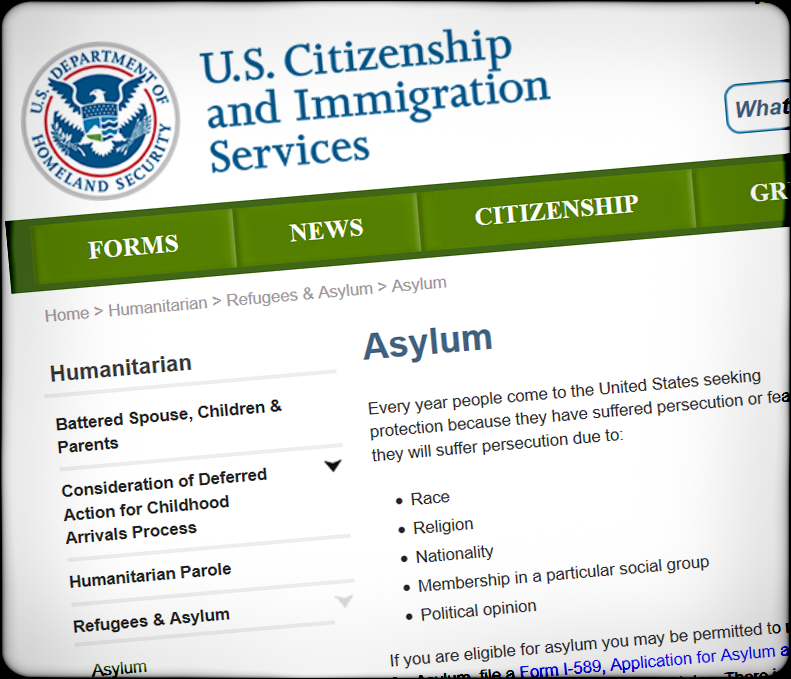 "On May 31, 2012, in an effort to improve access to counsel before CBP, ICE and USCIS, the LAC and Penn State Law’s Center for Immigrants’ Rights released the report, Behind Closed Doors: An Overview of DHS Restrictions on Access to Counsel (docs/Behind_Closed_Doors_5-31-12.pdf). The report describes restrictions on access to legal representation before DHS, provides a legal landscape, and offers recommendations designed to combat DHS’s harmful practices. It also addresses recent changes to USCIS guidance that are intended to expand access to legal representation. The report includes anecdotes from immigration attorneys across the country indicating that CBP, ICE and USCIS often interfere with noncitizens’ access to counsel in benefits interviews, interrogations, and other types of administrative proceedings outside of immigration court. Depending on the context, immigration officers completely bar attorney participation, impose unwarranted restrictions on access to legal counsel, or strongly discourage noncitizens from seeking legal representation at their own expense." IAC Legal Action Center, May 31, 2012.
"On May 31, 2012, in an effort to improve access to counsel before CBP, ICE and USCIS, the LAC and Penn State Law’s Center for Immigrants’ Rights released the report, Behind Closed Doors: An Overview of DHS Restrictions on Access to Counsel (docs/Behind_Closed_Doors_5-31-12.pdf). The report describes restrictions on access to legal representation before DHS, provides a legal landscape, and offers recommendations designed to combat DHS’s harmful practices. It also addresses recent changes to USCIS guidance that are intended to expand access to legal representation. The report includes anecdotes from immigration attorneys across the country indicating that CBP, ICE and USCIS often interfere with noncitizens’ access to counsel in benefits interviews, interrogations, and other types of administrative proceedings outside of immigration court. Depending on the context, immigration officers completely bar attorney participation, impose unwarranted restrictions on access to legal counsel, or strongly discourage noncitizens from seeking legal representation at their own expense." IAC Legal Action Center, May 31, 2012.
"On behalf of their client, the American Immigration Council’s Legal Action Center (LAC), students from the Penn State Law Center for Immigrants’ Rights contributed to the production of a report on immigrant access to legal counsel released today. Behind Closed Doors: An overview of DHS Restrictions on Access to Counsel concludes that the Department of Homeland Security’s immigration agencies — U.S. Citizenship and Immigration Services (USCIS), Immigration and Customs Enforcement (ICE), and Customs and Border Protection (CBP) — often interfere with noncitizens’ access to counsel in benefits interviews, interrogations, and other types of administrative proceedings outside of immigration court.
“This project allowed students to work with the LAC, which has long advocated for increased access to counsel in immigration proceedings. The immigration statute explicitly provides that a noncitizen has a right to counsel during deportation (now "removal") proceedings at his own expense, but does not provide noncitizens with government-paid counsel,” said Professor Shoba Sivaprasad Wadhia, director of the Center for Immigrant’s Rights. “Less understood but significant is the role of counsel in immigration proceedings before the Department of Homeland Security (DHS) which is why the Center wanted to collaborate with LAC to produce a related white paper addressing the major legal and policy issues.”
Over the course of two semesters, a team of four law students at the Center reviewed legal documents, conducted additional research, analyzed more than 100 surveys by attorneys, interviewed attorneys about their experiences with access to counsel, and contributed to the drafting of this report and its recommendations. The white paper articulates the legal and policy standards governing an individual’s right to counsel in various non-removal settings in order to provide a framework for understanding the rights of represented individuals as well as the agency culture that continues to limit and deny representation in encounters before DHS. “The paper illustrates how current DHS practices do not comply with existing law and/or apply restrictive interpretations of the law that are not good policy,” Wadhia said. Included in the paper are recommendations to DHS and other federal agencies for improving access to counsel.
Stephen Coccorese ’12 one of the students working on the project said, “This was a great opportunity to work on an important and emerging issue in immigration law that could have a substantial real-world impact.”
Heather Hoechst ’12 also was pleased to work on a project which will have an effect on practitioners of immigration law. “It also helped me improve other skills which will serve me well in practice. I was able to hone my communication skills, learn more about interpersonal working relationships, and be exposed to an environment requiring professionalism and cooperation." Sara Hart ’12 and Elizabeth Boul ’12 also were part of the team that produced the final report." - Penn State Law, May 30, 2012.



